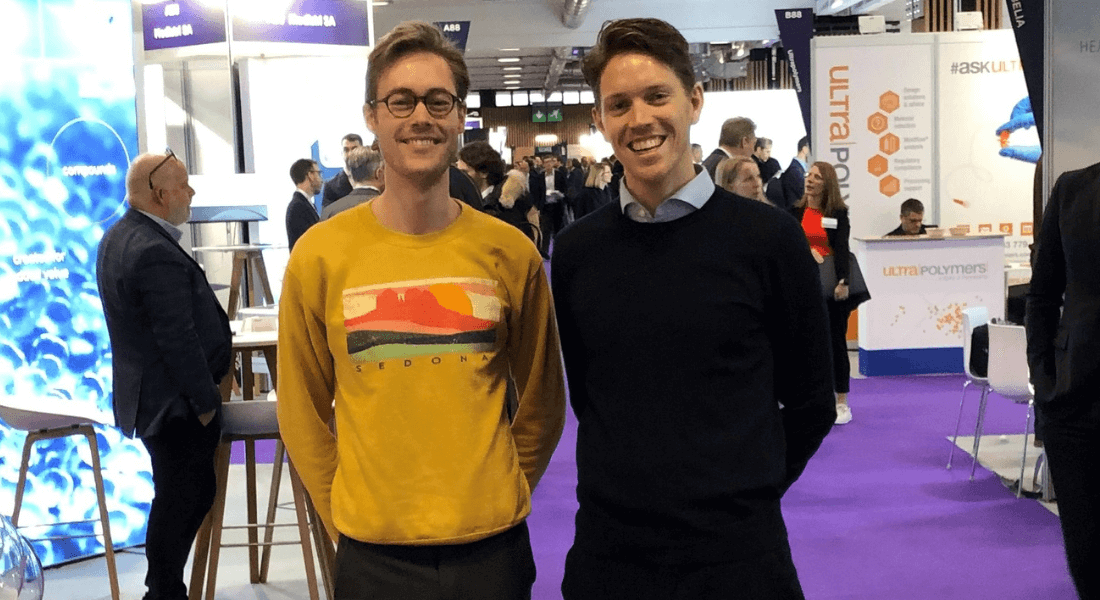Meet the Health Innovators: Mixtery ApS

Injectable drugs are given every single day to patients worldwide in the health care sector. Reconstitution of injectable drugs poses significant challenges. It is a complex, error-prone, and time-consuming process that requires substantial amounts of single-use equipment. The startup, Mixtery, has a strong vision to improve drug reconstitution, aiming to make it safe, efficient, and sustainable.
Reconstitution of injectable drugs is the process of adding and mixing a diluent to a drug that is not already in solution. Mixtery have invented a system for separating and subsequently mixing a diluent with a drug in need of reconstitution. Co-founder, Peter Laursen explains that their system can potentially reduce the risks of erroneous reconstitution, reduce the time spent on reconstitution, and reduce the need for single use equipment.
From students to founders in health innovation
The startup consists of the two co-founders, Peter Harket and Peter Laursen. They recently graduated from Copenhagen Business School. The third team member is a medical student, Sofie Kryger from the University of Copenhagen.
When asked about how they developed from their first idea to becoming a promising early-stage startup in the healthcare arena, Peter Laursen explained, how they began their entrepreneurial journey in a completely different field. Their idea came from their previous invention: a product that can separate two liquids in a bottle to enable consumers to be their own bartender.
When learning about the challenges related to reconstitution of injectable drugs, they soon aimed all their dedication and passion to create meaningful impact for patients and health care providers. They decided to make the preparation and administration of medications safer. Today they have a promising product, a company and is continuously developing a strong, need based foundation for their business.
The startup has been part of university incubators at both CBS and University of Copenhagen. At University of Copenhagen, they took part in the 2023 Health Innovators Programme. This programme supports the development of new solutions for the health care sector with incubation, workshops, a unique network, and business development.
Creating an impact for patients and overcoming challenges
The team find strong fulfillment in knowing that their solution – If implemented correctly – will improve the lives of patients, healthcare professionals, and society as a whole. This is an enormous motivation for the team. They highlight how it really sharpens their senses and dedication to get it “right” when developing their product and business.
As student entrepreneurs, the team discovered that their energy and enthusiasm opened doors for guidance and assistance from every corner. They were met with overwhelming support as health domain experts recognized the value in supporting aspiring innovators.
However, being taken seriously in the industry also poses its challenges for the young startup entering the ecosystem. To face industry skeptics the team focus on intense preparation to leave positive impression of their seriousness. They recognize the industry's nature, particularly within the pharmaceutical sector. Here, the slow pace of change requires patience and a long-term perspective for the early-stage startup, because implementing new solutions often takes years rather than months.
The Mixtery team members each bring different competencies to the table to complement each other. Peter Harket oversees product development, Peter Laursen is leading the business development, and Sofie provides essential clinical and medical considerations.
Taking part in Health Innovators
The team joined the Health Innovators Program to better understand the demand side of their business. This includes hospital procurement (purchasers), health personnel (users) and patients (beneficiaries).
Furthermore they wanted to be closer to other life science start-ups and saw the program as an opportunity to connect with other life science startups. They build a network of like-minded individuals in the healthcare innovation space. Taking part in the program provided them with a unique platform to establish credibility despite their unconventional academic backgrounds. They gained valuable new contacts and received feedback from industry experts. Workshops and one-on-one business development sessions enabled them to refine their ideas, expand their knowledge, and strengthen their position in the healthcare innovation landscape.
The Health Innovators program is open for students with ideas to improve health.
